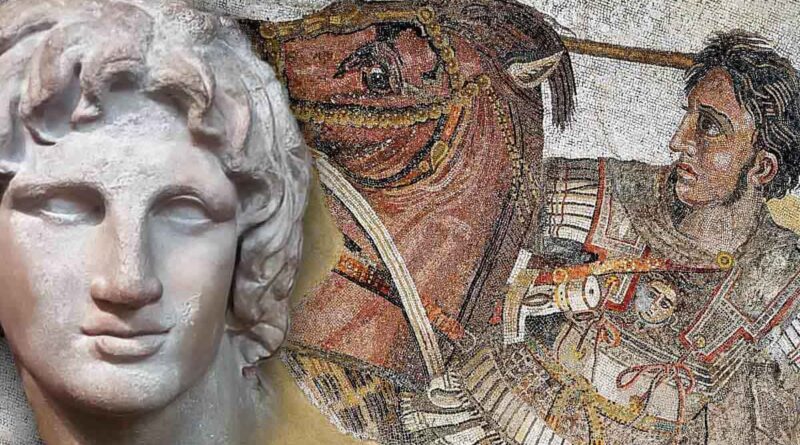The Greatness of Alexander the Great
Alexander the Great (356–323 BCE), often regarded as one of history’s most extraordinary military commanders and visionaries, embodies the pinnacle of ancient ambition, strategy, and cultural fusion. His life, marked by unparalleled conquests that stretched from Greece to India, transformed the ancient world and laid the foundations for the Hellenistic era. Alexander’s greatness lies not only in his undefeated military record but also in his intellectual depth, administrative innovations, and enduring legacy that influenced civilizations for centuries. Born in the kingdom of Macedonia, he ascended to power at a young age and built an empire that spanned over 2 million square miles, blending Greek, Persian, Egyptian, and Indian cultures in ways that reshaped global history. This long topic delves deeply into his biography, achievements, leadership, controversies, and lasting impact, drawing from historical accounts to illustrate why he earned the epithet “the Great.” His story is one of divine aspiration, tactical brilliance, and human paradox, inspiring figures from Julius Caesar to Napoleon.

Alexander was born on July 20, 356 BCE, in Pella, the ancient capital of Macedonia (modern-day northern Greece), to King Philip II and Queen Olympias. His birth was shrouded in legend; Olympias claimed divine intervention, suggesting Zeus as his true father, a narrative that fueled Alexander’s later perceptions of divinity. Philip II, a masterful reformer who unified Macedonia and subdued Greek city-states, provided a militaristic environment for young Alexander, who grew up witnessing his father’s campaigns and diplomatic maneuvers.From ages 13 to 16, Alexander was tutored by the philosopher Aristotle, arranged by Philip at the Temple of the Nymphs in Mieza. This education was pivotal, instilling in him a love for philosophy, literature (especially Homer’s Iliad, which he carried on campaigns), medicine, and scientific inquiry. Aristotle’s teachings emphasized rational thought, ethics, and the superiority of Greek culture, influencing Alexander’s later policies of cultural integration. By age 16, Alexander demonstrated leadership when left as regent during Philip’s siege of Byzantium; he quelled a revolt by the Maedi tribe in Thrace, founding his first city, Alexandroupolis, and showcasing early military prowess. In 338 BCE, at the Battle of Chaeronea, the 18-year-old Alexander commanded the Macedonian left wing, breaking the elite Sacred Band of Thebes and contributing to Philip’s victory over the Greek alliance, solidifying Macedonian dominance over Greece.
Upon Philip’s death, Alexander, aged 20, ascended the throne amid chaos. He swiftly eliminated potential rivals, including his cousin Amyntas IV and Attalus, a general who had insulted him, to secure his position. Greek city-states, sensing weakness, revolted; Alexander responded decisively. In 335 BCE, he razed Thebes to the ground after its rebellion, killing 6,000 inhabitants and enslaving the rest, a brutal act that quelled further uprisings and demonstrated his ruthlessness. The League of Corinth, formed by Philip, appointed him as hegemon (leader) for the planned invasion of Persia, fulfilling his father’s ambition to avenge the Persian invasions of Greece in the 5th century BCE.
Military Conquests: Building the Largest Empire of Antiquity

Alexander’s conquests, spanning from 334 to 323 BCE, exemplify his military genius, earning him the title “the Great” through undefeated battles and vast territorial expansion. His campaign against the Achaemenid Persian Empire, the world’s largest at the time, began with the Battle of the Granicus River in May 334 BCE, where he defeated Persian satraps despite being outnumbered, securing western Asia Minor.
In 333 BCE, at the Battle of Issus, Alexander routed King Darius III’s massive army (estimated 100,000 strong) using a flanking maneuver, capturing Darius’ family and forcing the Persian king to flee. He then besieged Tyre (332 BCE), a seven-month ordeal where he built a causeway to the island city, showcasing engineering ingenuity; its fall allowed him to conquer Phoenicia and cut off Persian naval power. Entering Egypt in 332 BCE, he was hailed as liberator from Persian rule, crowned pharaoh, and founded Alexandria, which became a cultural hub.
Administrative and Cultural Achievements: Fusion of Worlds
Culturally, Alexander initiated the Hellenistic Age, spreading Greek language, art, and philosophy across Asia. He adopted Persian dress and customs (proskynesis), promoting syncretism, though this alienated some Macedonians. His policies facilitated East-West exchange, influencing art (e.g., Gandhara Greco-Buddhist sculptures) and science.
Death and Immediate Aftermath
Alexander died on June 10 or 13, 323 BCE, in Babylon, aged 32, after a fever following banquets—possibly from malaria, typhoid, or poison. Without a clear heir (his son Alexander IV was born posthumously), his empire fragmented. His generals (Diadochi) divided territories, leading to the Wars of the Successors and independent kingdoms like Ptolemaic Egypt. His body was mummified and entombed in Alexandria.

Alexander’s brutality is critiqued: the sack of Thebes, massacres in Persia, and killings of allies like Cleitus (in a drunken rage) and Parmenion reveal paranoia. His adoption of Eastern ways strained Macedonian relations, and his unchecked ambition led to unnecessary hardships, like the Gedrosian march. Some historians question his divinity claims as megalomania.
